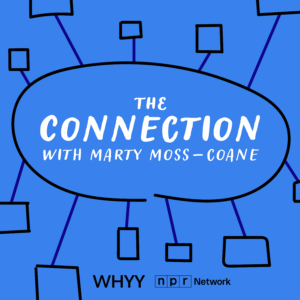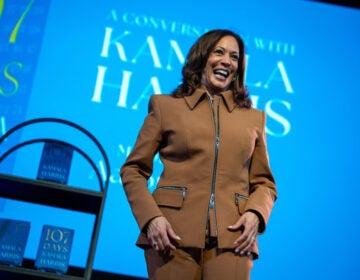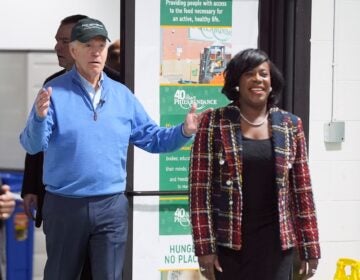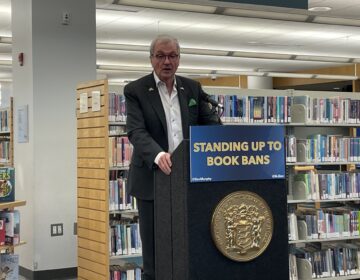‘The Injustice of Place’
Why are some rural communities so deeply disadvantage? A conversation about some of the poorest places in America with Princeton University's Kathryn Edin and Timothy Nelson.
Listen 50:32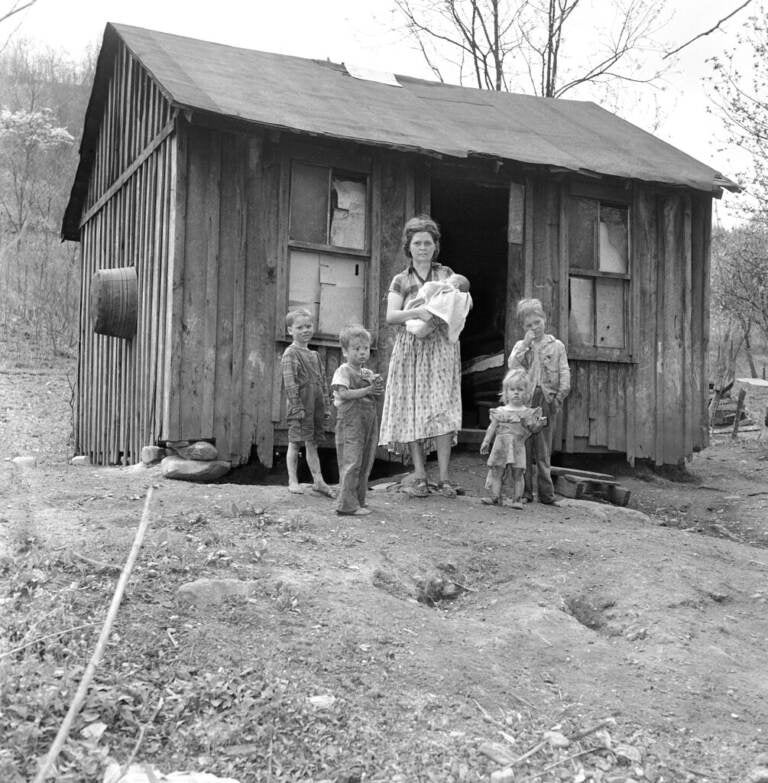
This is the home and family of Orville Sturgill, a United Mine Worker who is out of work due a strike in this coal field for higher wages in Mayking, Kentucky on April 28, 1959. Sturgill, with another miner, work a small truck mine but cannot market their production. This one room shack is on a county road running along Cram Creek. The five children, left to right are: Anderson, 6, Orville Ray, 5, Mrs. Cornia Mae Sturgill holds John, one month, Pricilla Ann, 2, and Arnold 8. Sturgill has a little garden patch in back of the house which he and the oldest son work. A sixth child is in Blind school in Louisville. (AP Photo/HBL)
Princeton University sociologists Kathryn Edin and Timothy Nelson have spent years trying to understand poverty and why families, generation after generation, can’t escape it. Their new book, The Injustice of Place. is about the country’s most disadvantaged communities, which are not in big cities. They are in Appalachia, the Cotton and Tobacco Belts of the deep South and in Southern Texas.
Edin, Nelson and their co-author Luke Schaefer explore how these “internal colonies” have been exploited and abandoned by powerful industries. Left in their wake are hollowed-out towns struggling with violence, unemployment, addiction, and a loss of person-to-person connection. Edin and Nelson join us to talk about the importance of libraries, community and religious centers, bookstores, bowling alleys and places where people congregate to help reduce the destructive psychological impacts of deep poverty.
We’ll also talk with education advocate Tamala Boyd Shaw, who founded a charter school in Greenwood, Mississippi to give students an enriched learning environment, something she didn’t have growing up in Greenwood.
WHYY is your source for fact-based, in-depth journalism and information. As a nonprofit organization, we rely on financial support from readers like you. Please give today.



